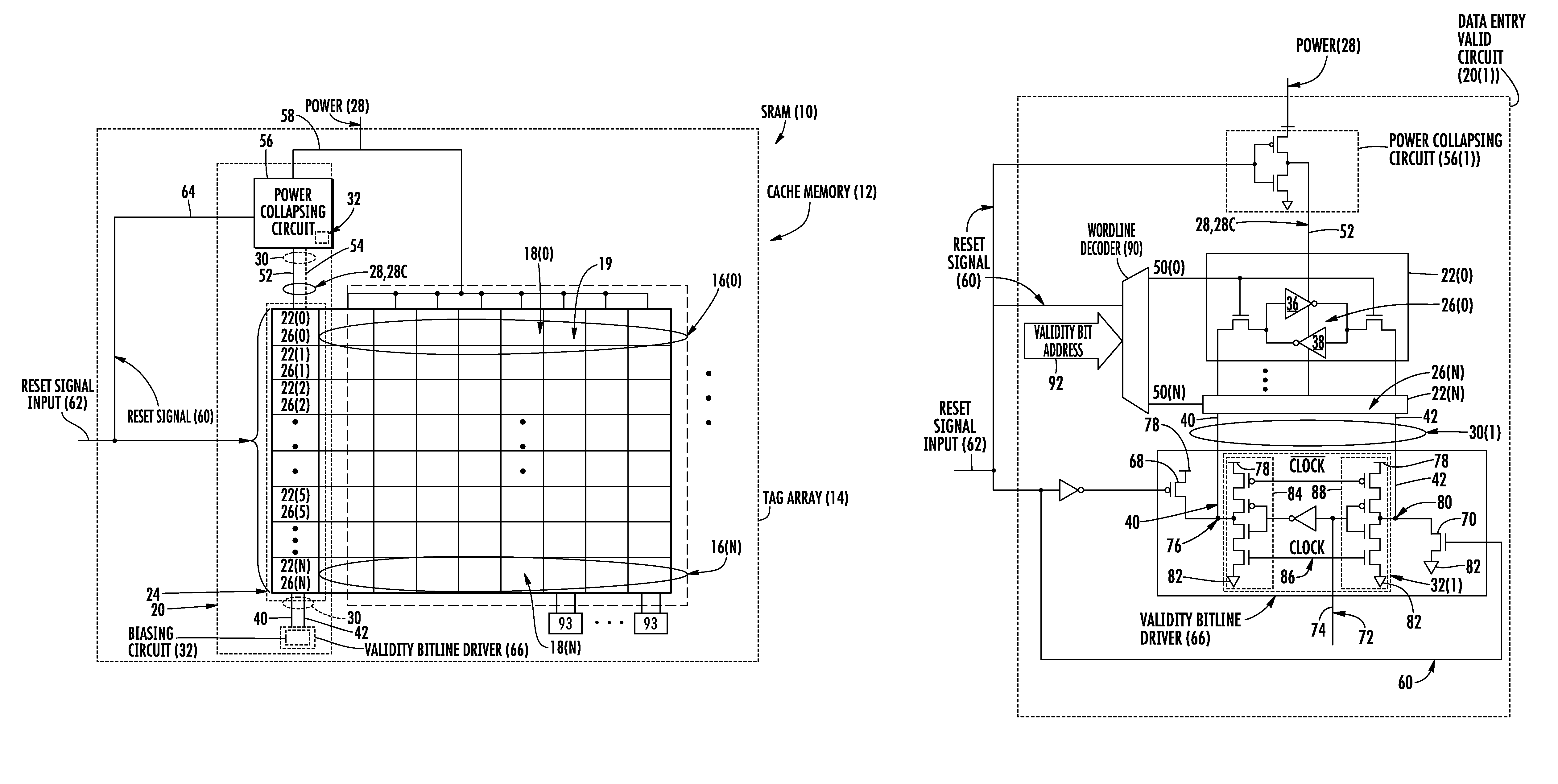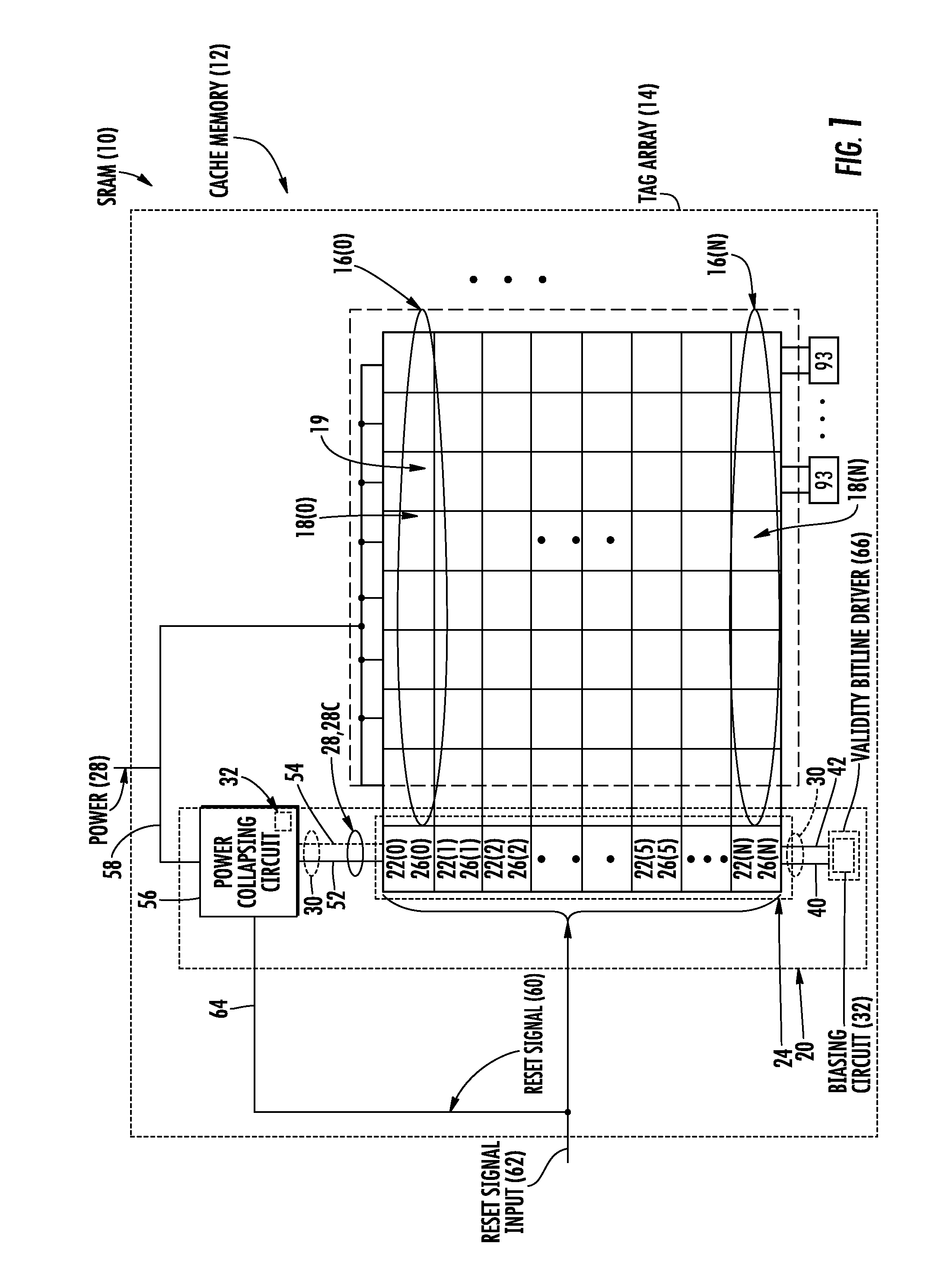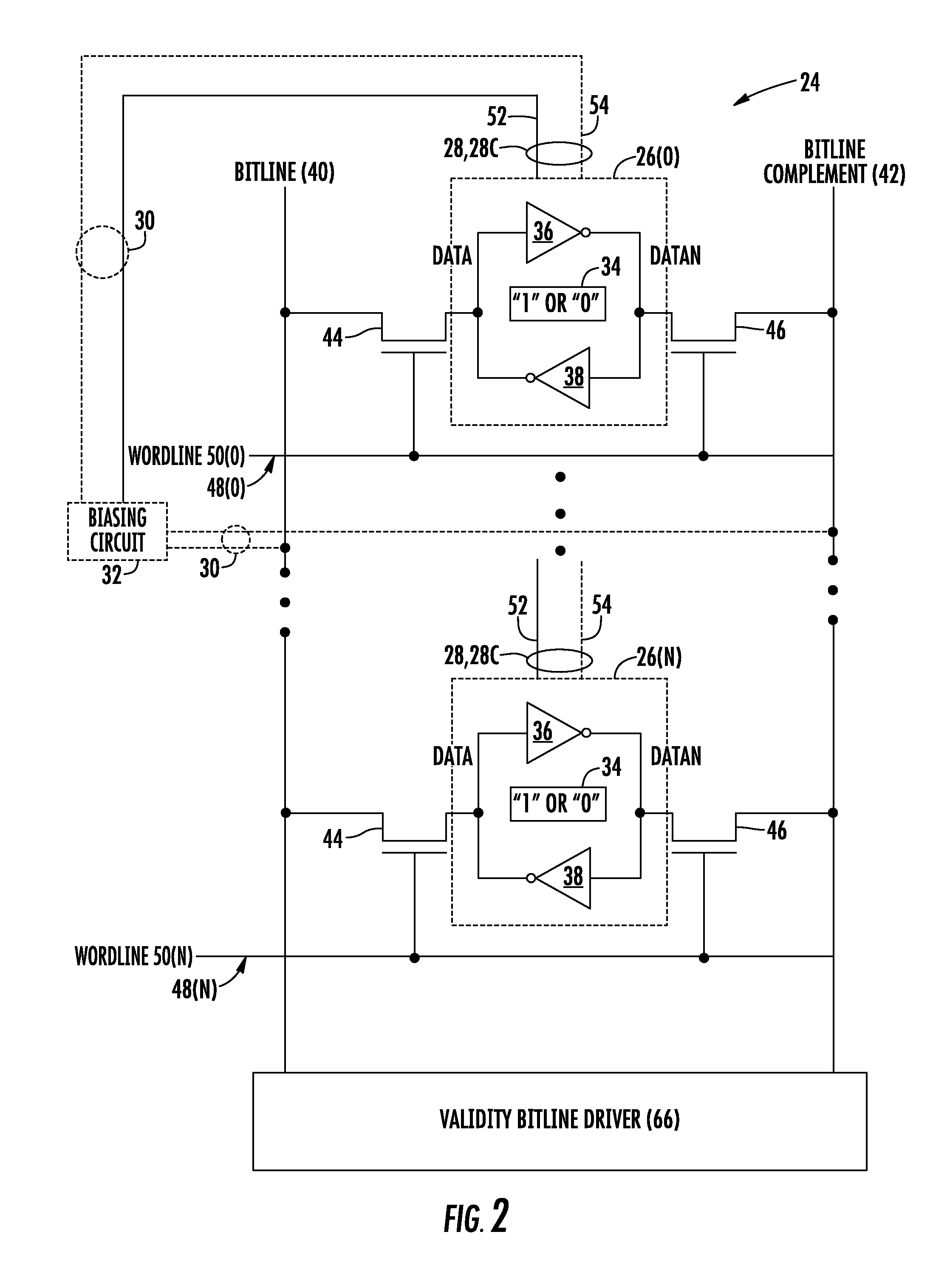Circuits for voltage or current biasing static random access memory (SRAM) bitcells during SRAM reset operations, and related systems and methods
a static random access memory and sram bitcell technology, applied in static storage, information storage, digital storage, etc., can solve the problem that the sram bitcells cannot be correctly reset to the desired state, and the sram bitcells cannot always be correctly res
- Summary
- Abstract
- Description
- Claims
- Application Information
AI Technical Summary
Benefits of technology
Problems solved by technology
Method used
Image
Examples
Embodiment Construction
[0025]With reference now to the drawing figures, several exemplary embodiments of the present disclosure are described. The word “exemplary” is used herein to mean “serving as an example, instance, or illustration.” Any embodiment described herein as “exemplary” is not necessarily to be construed as preferred or advantageous over other embodiments.
[0026]Embodiments disclosed in the detailed description include circuits for voltage or current biasing static random access memory (SRAM) bitcells during SRAM reset operations. Related systems and methods are also disclosed. As one non-limiting example, the SRAM bitcells are included in an SRAM cache memory provided in a central processing unit (CPU) system. It may be desired to reset a plurality of SRAM bitcells to a desired state in a single reset operation, as opposed to a more time consuming method of resetting the state of each SRAM bitcell individually. For example, it may be desired to perform a reset invalidate operation for inval...
PUM
 Login to View More
Login to View More Abstract
Description
Claims
Application Information
 Login to View More
Login to View More - R&D
- Intellectual Property
- Life Sciences
- Materials
- Tech Scout
- Unparalleled Data Quality
- Higher Quality Content
- 60% Fewer Hallucinations
Browse by: Latest US Patents, China's latest patents, Technical Efficacy Thesaurus, Application Domain, Technology Topic, Popular Technical Reports.
© 2025 PatSnap. All rights reserved.Legal|Privacy policy|Modern Slavery Act Transparency Statement|Sitemap|About US| Contact US: help@patsnap.com



